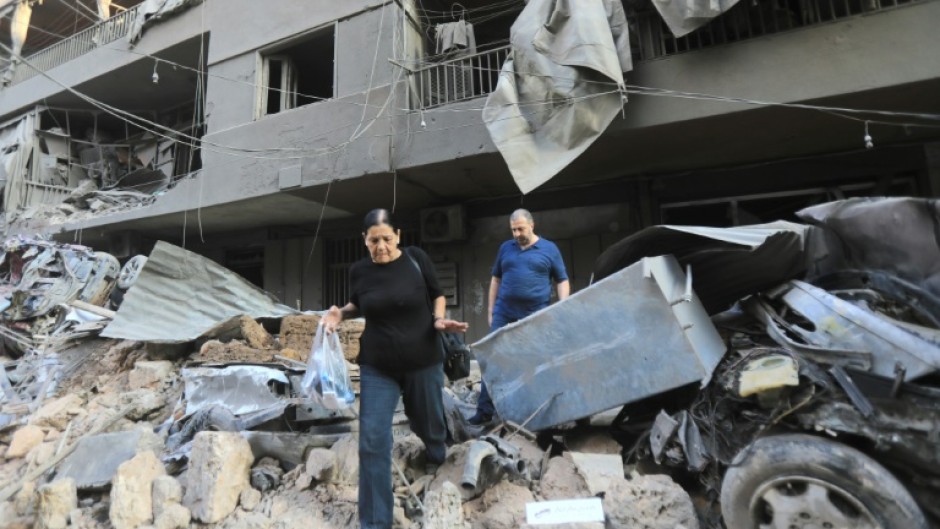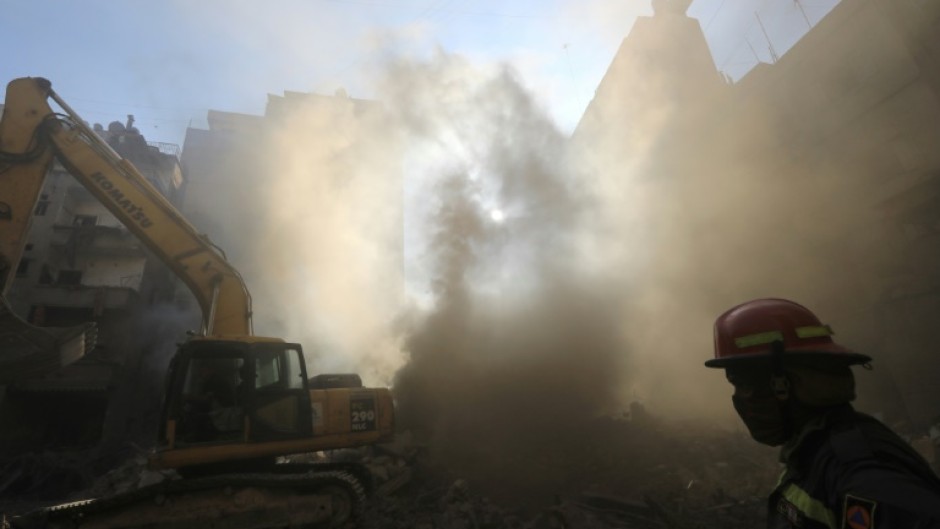Lebanon urged the UN on Friday to demand an "immediate" ceasefire between Israel and Hezbollah, nearly three weeks into a war that has killed 1,200 people and displaced more than a million others.
The call came after Israel appeared to target Hezbollah's security chief in air strikes on Beirut that killed 22 people, the deadliest on the centre of the capital since the conflict erupted.
The raid came as Israel prepared to observe Yom Kippur, the holiest day on the Jewish calendar which begins on Friday, though troops will continue operations against Hezbollah and Hamas.
In Israel, from sundown on Friday until nightfall on Saturday, markets will close, flights will stop and public transport will halt as most Jews fast and pray on the Day of Atonement.
In a televised address, Lebanese Prime Minister Najib Mikati said the foreign ministry would ask the UN Security Council to issue a resolution calling for a "full and immediate ceasefire".
Calling for the Lebanese army and peacekeepers to be the only armed forces deployed in the south of the country, he said that "Hezbollah is in agreement on this issue", though the group has yet to comment on his speech.
Iran-backed Hezbollah is heavily armed and controls large swathes of Lebanon, and successive Lebanese governments have failed to subdue it.
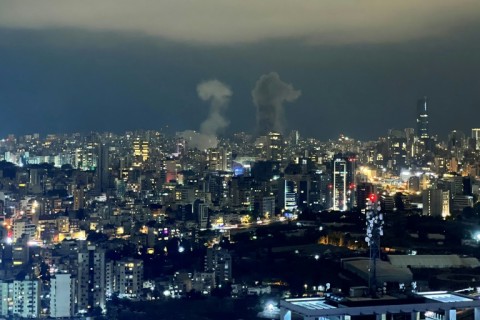
Hezbollah has fought Israel numerous times in recent decades, while the weak Lebanese military has been mostly unable to deploy in many areas under the militants' control.
After a year of cross-border fire, Israel escalated its strikes on Hezbollah strongholds and sent ground troops into south Lebanon, in a bid to secure its northern border.
The war has since September 23 killed more than 1,200 people, according to an AFP tally of Lebanese health ministry figures, and displaced more than a million others.
The worst-affected areas are home to majority Shiite Muslims, where Hezbollah built its support base by providing protection and services in a state long wracked by sectarianism and corruption.
But Christian villagers near the border have also been trapped in the cross-fire.
"When Israel bombards, it flies over our heads. And when Hezbollah fires back, it also whizzes by above," Christian Joseph Jarjour told AFP by phone from the border village of Rmeish.
"We're peaceful, we don't have any weapons. We've never liked war," he said.
- Ceasefire calls -
Mikati's statement is the latest in a chorus of calls for a de-escalation.
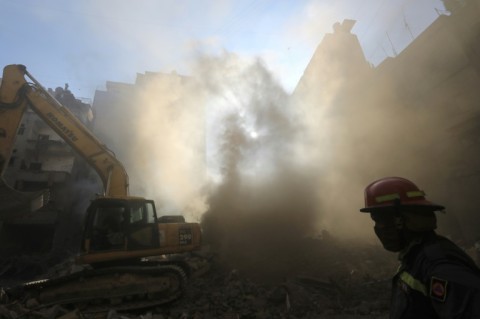
On Friday, US Secretary of State Antony Blinken voiced hope for a diplomatic solution and averting a broader conflict, as he backed efforts by the state to assert itself against Hezbollah.
"It's clear that the people of Lebanon have an interest, a strong interest in the state asserting itself and taking responsibility for the country and its future."
Israeli Prime Minister Benjamin Netanyahu this week urged Lebanese people to rise up against Hezbollah, or risk a similar fate to the people of Hamas-run Gaza.
"Free your country from Hezbollah so that this war can end," he said.
Thrust into the spotlight was the UN peacekeeping force in Lebanon, tasked with patrolling areas along the border.
Lebanon on Friday condemned an Israeli attack that it said wounded United Nations peacekeepers in the country's south, after state media reported a second such attack in as many days.
The Israeli military said it had been operating against Hezbollah militants near UNIFIL headquarters and had "instructed the UN forces in the area to remain in protected spaces".
In central Beirut, residents, some weeping, were checking their homes and asking for news of neighbours, after a strike on Thursday that appeared to target Hezbollah's security chief killed 22 people.
"The head of Hezbollah's security apparatus, Wafiq Safa, was targeted," a source close to Hezbollah told AFP Friday, requesting anonymity to discuss the matter.
Safa was close to Hezbollah's late leader Hassan Nasrallah, who was killed in an Israeli strike on south Beirut last month.
But people in the neighbourhood were stunned by the ferocity of the strike.
"There are a lot of families living here," many displaced from south Lebanon and who have relatives in the neighbourhood, said Bilal Othman.
"Do they (Israel) want to tell us there is no safe place left in this country?"
- Promised retaliation -
Hezbollah began firing on Israel in support of its Palestinian ally Hamas, following the October 7, 2023 attack, the worst in Israel's history.
Israel has vowed to destroy Hamas and bring back the hostages seized by militants on October 7.
More recently, with Hamas weakened but not crushed in Gaza, Netanyahu promised to secure Israel's northern border with Lebanon, in order to allow tens of thousands of Israelis displaced from their homes by Hezbollah's cross-border fire to return.
With Lebanon deep in political and economic crisis for years, the power and influence of Iran-backed Hezbollah has become ever more entrenched in the Mediterranean country.
A stark symbol of the failure of Lebanese institutions to maintain even a semblance of rule of law was the Beirut port explosion of 2020, which killed more than 200 people and for which there has been no justice to date.
Israel has also promised to retaliate against Iran's missile attack last week, which Tehran had said was vengeance for the assassination of two of its closest allies, Hezbollah leader Nasrallah and Hamas leader Ismail Haniyeh, along with an Iranian general.
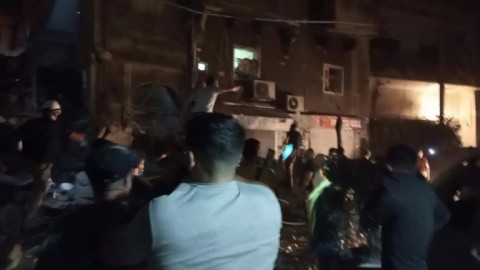
Biden has cautioned Israel against attempting to target Iran's nuclear facilities and opposes striking oil installations.
"I don't think we are currently in a situation that the two countries are seeking an all-out direct war," Hamid, a 29-year-old university student in Tehran, told AFP.
"It will have severe economic and military consequences" for both countries, he added.
By Lisa Golden With David Stout In Jerusalem

